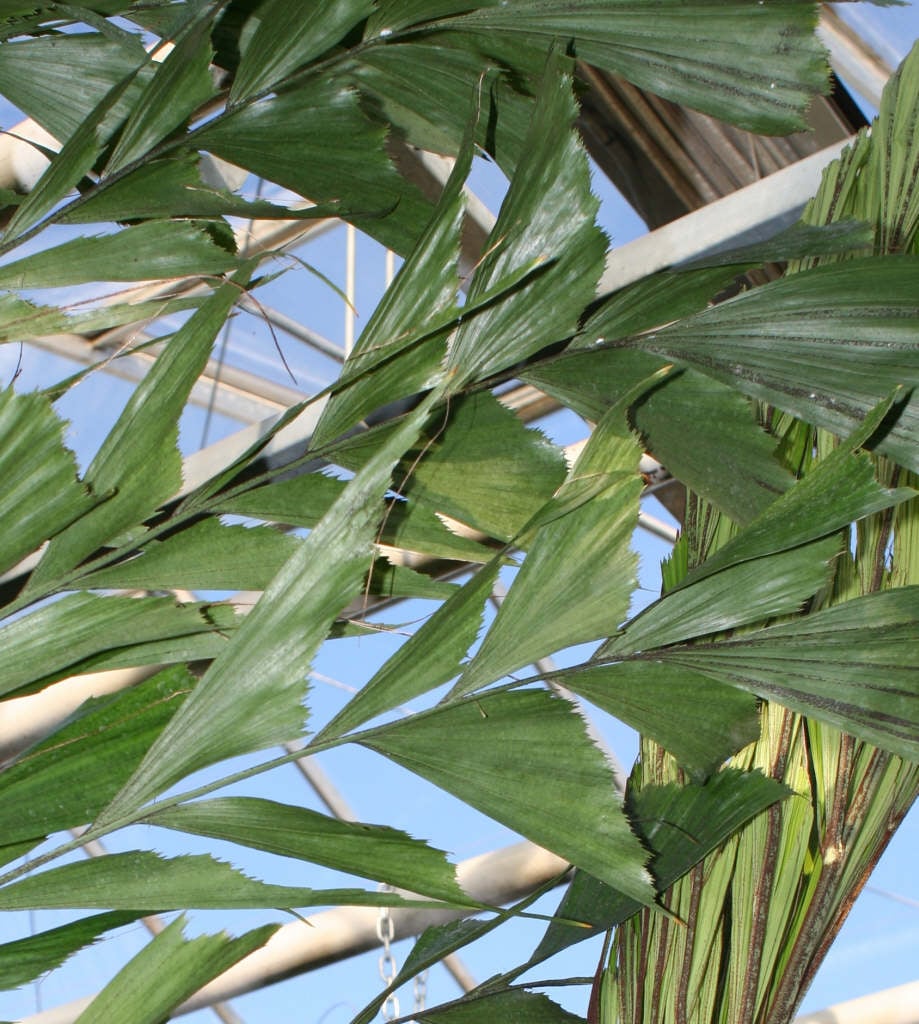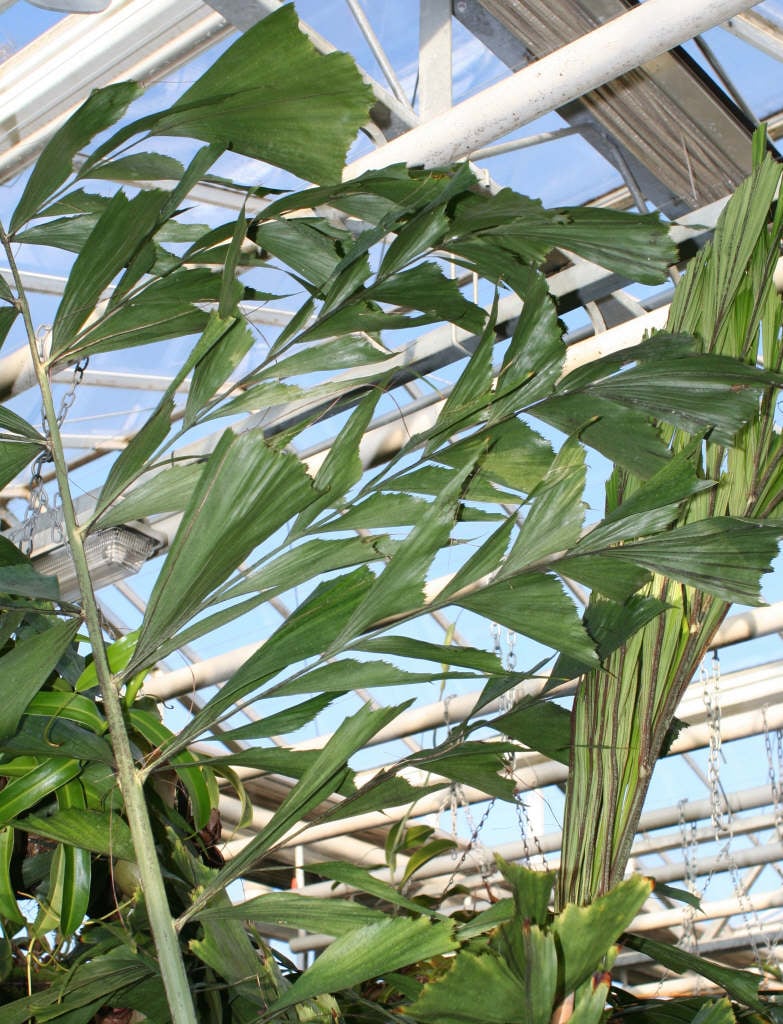Caryota mitis
Burmese fishtail palm
An evergreen palm with clustered stems bearing rich green leaves to 4m in length, composed of triangular leaflets, and panicles of creamy-white flowers in summer
Other common names
clustered fishtail palmtufted fishtail palm
Size
Ultimate height
4–8 metresTime to ultimate height
20–50 yearsUltimate spread
2.5–4 metresGrowing conditions
Moisture
Moist but well–drainedpH
Acid, Alkaline, NeutralColour & scent
| Stem | Flower | Foliage | Fruit | |
| Spring | Green | |||
|---|---|---|---|---|
| Summer | Cream | Green | ||
| Autumn | Green | |||
| Winter | Green |
Position
- Full sun
Aspect
South–facing or West–facing or East–facing or North–facing
Exposure
ShelteredDrought resistance
Yes Hardiness
H1CBotanical details
- Family
- Arecaceae
- Native to GB / Ireland
- No
- Foliage
- Evergreen
- Habit
- Clump forming
- Potentially harmful
- Harmful if eaten, skin irritant. Wear gloves and other protective equipment when handling Pets (dogs, cats): Harmful if eaten, skin irritant - see the HTA guide to potentially harmful plants for further information and useful contact numbers
- Genus
Caryota are evergreen palms with solitary or clustered stems bearing large, 2-pinnate leaves at the apex of each stem; small cream flowers are borne in large panicles in summer
- Name status
Correct
- Plant range
- SE China to Indo-China & Malesia
How to grow
Cultivation
Grow under glass in a peat-free, loam-based potting compost in bright filtered light with high humidity. When in growth water moderately and apply a balanced liquid fertiliser monthly. Water sparingly in winter
Propagation
Propagate by seed sown in spring at 27°C
Suggested planting locations and garden types
- Mediterranean climate plants
- Architectural
- City and courtyard gardens
- Patio and container plants
Pruning
No pruning required
Pests
May be susceptible to scale insects and glasshouse red spider mite
Diseases
Generally disease-free
Love gardening
Sign up to receive regular gardening tips, inspiration, offers and more
View our Privacy Policy
Get involved
The Royal Horticultural Society is the UK’s leading gardening charity. We aim to enrich everyone’s life through plants, and make the UK a greener and more beautiful place.

